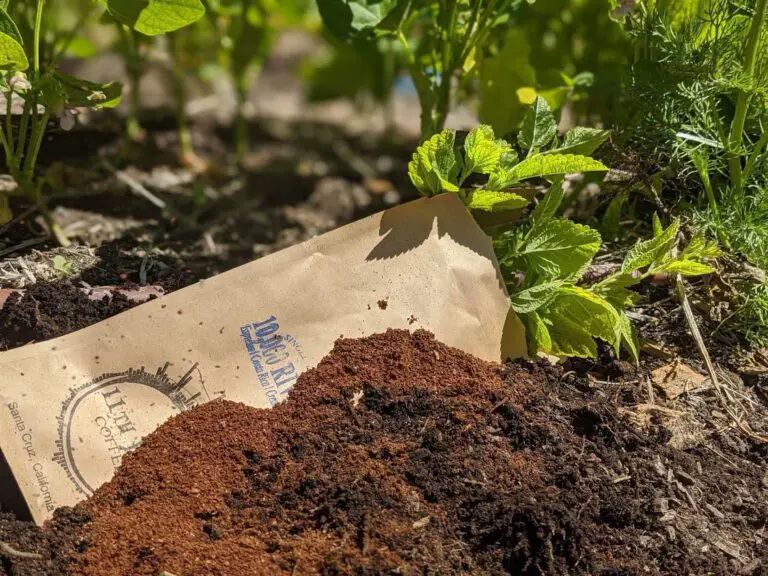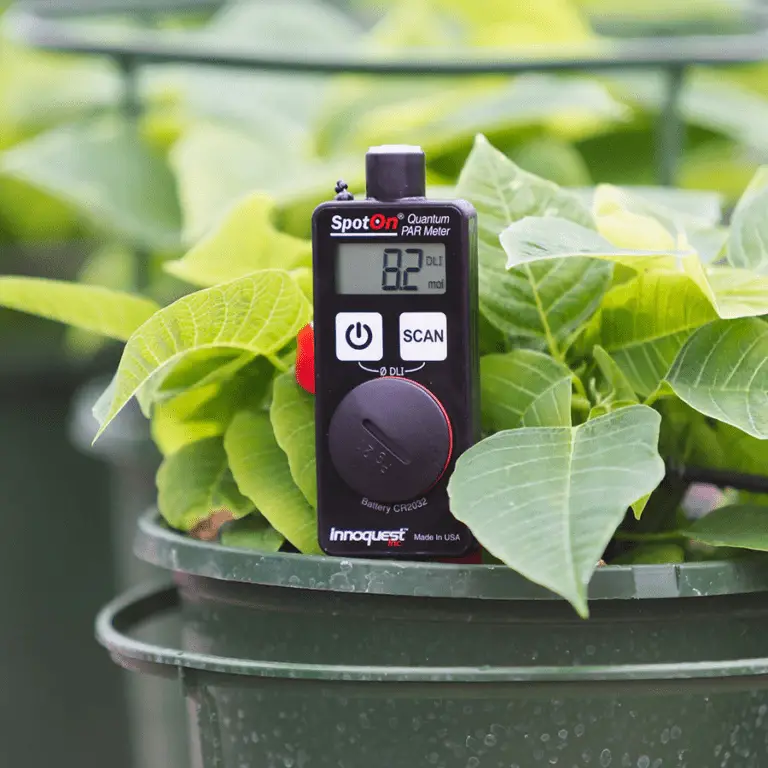Best Cloning Machine: A Review of the Top Products for Plant Propagation
Table of Contents
Understanding Plant Propagation: A Key to Successful Cloning
Plant propagation is a fundamental process in gardening and horticulture, serving as the key to successful cloning. By understanding plant propagation methods, gardening enthusiasts can reproduce their favorite plants and create an abundant supply for their gardens.
Plant propagation involves various techniques such as cloning, grafting, seed germination, and division. Cloning allows for the replication of a specific plant’s genetic makeup, ensuring the preservation of desirable traits and characteristics. This technique is particularly useful for propagating rare or unique plant varieties. Successful cloning requires careful attention to detail, including the selection of appropriate plant material, the use of suitable cloning machines, and adherence to precise timing and environmental conditions.
The Importance of Choosing the Right Cloning Machine
Choosing the right cloning machine is of utmost importance when it comes to successful plant propagation. With the wide variety of options available in the market, making an informed decision becomes crucial for gardening enthusiasts. A cloning machine acts as a catalyst in the cloning process, ensuring the healthy growth and development of the plant clones.
The right cloning machine not only simplifies the cloning process but also enhances the chances of achieving high success rates. Different cloning machines offer various features and advantages, catering to the specific needs of different gardeners. Factors such as efficiency, ease of use, capacity, and control over key parameters like temperature and humidity are essential considerations in choosing the right cloning machine.
When selecting a cloning machine, it is essential to assess the specific requirements of individual plants and gardens to ensure optimal results. By carefully considering the features and benefits of different machines, gardeners can make an informed choice that aligns with their goals and preferences. A well-chosen cloning machine can be the key to successful plant propagation and a thriving garden.
Factors to Consider Before Buying a Cloning Machine
When considering purchasing a cloning machine for plant propagation, there are several important factors that should be taken into account. First and foremost, it is crucial to determine the specific needs and goals of the gardening project. Understanding the desired outcome, such as the number of plants to be propagated or the types of plants being cloned, will help in selecting the most appropriate cloning machine.
Another important factor to consider is the size and capacity of the cloning machine. Different models come with various capacities, ranging from small-scale units suitable for personal use to larger machines designed for commercial operations. It is essential to choose a cloning machine that aligns with the scale of the gardening project to ensure optimal performance and efficiency. Additionally, the available space in the growing area should be taken into account, as larger cloning machines may require more room for installation and operation. By carefully considering these factors, gardeners can make an informed decision when choosing a cloning machine that best suits their specific needs and requirements.
Exploring Different Types of Cloning Machines for Plant Propagation
There are various types of cloning machines available on the market today, each with its own unique features and benefits for plant propagation. One such type is the aeroponic cloning machine. Aeroponic cloning machines utilize a misting system to evenly distribute water and nutrients to the plant cuttings. This method allows for increased oxygenation, promoting rapid root development and overall growth. Aeroponic cloning machines are often preferred for their efficiency and ability to produce high success rates in cloning.
Another type of cloning machine is the deep water culture (DWC) system. DWC cloning machines use a nutrient-rich solution that the plant cuttings are submerged into. This hydroponic method provides constant access to water, nutrients, and oxygen, creating an optimal environment for root development. DWC cloning machines are known for their simplicity and effectiveness, making them a popular choice among hydroponic growers.
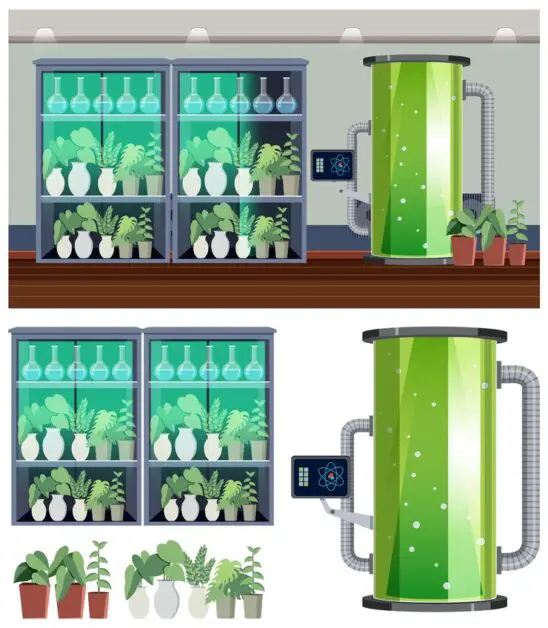
Aside from these two types, there are also various other cloning machine options available, such as misting and fogging systems, as well as manual cloning machines. Each type has its own set of advantages and disadvantages, and the choice ultimately depends on the specific needs and preferences of the gardener. By exploring the different types of cloning machines for plant propagation, gardening enthusiasts can find the most suitable option that aligns with their goals and cultivation practices.
Analyzing the Features and Benefits of Automated Cloning Machines
Automated cloning machines have revolutionized the process of plant propagation by offering a range of features and benefits that enhance efficiency and yield. One of the key advantages of automated cloning machines is their ability to provide consistent and precise environmental conditions for optimal plant growth. These machines are equipped with advanced sensors and controls that monitor and regulate factors such as temperature, humidity, and lighting to create an ideal environment for rooting and development.
In addition to environmental control, automated cloning machines also offer various automated functions that simplify the cloning process. For instance, they can automatically mist the cuttings at regular intervals, ensuring proper hydration and reducing the risk of wilting. Some models even come with timers and programmable settings, allowing growers to customize the cloning process based on the specific needs of the plants. Furthermore, automated cloning machines often have built-in rooting gels or aeroponic chambers that promote faster and healthier root formation, leading to higher success rates. With these features, growers can save time and effort while achieving consistent and reliable results.
Manual Cloning Machines: A Cost-Effective Option for Plant Propagation
Manual cloning machines offer a cost-effective option for plant propagation, making them a popular choice among gardening enthusiasts. These machines provide a simple yet efficient way to clone plants, allowing for the multiplication of desirable traits and the reproduction of beloved specimens. With manual cloning machines, gardeners can easily replicate their favorite plants without the need for expensive automated systems.
One of the key advantages of manual cloning machines is their affordability. Unlike their automated counterparts, manual cloning machines are typically less expensive, making them a viable option for hobbyists and small-scale gardeners on a budget. Additionally, manual cloning machines are user-friendly and easy to operate, requiring minimal maintenance and technical knowledge. This accessibility makes them an attractive choice for beginners in the world of plant propagation.
However, it is important to note that manual cloning machines may not be as efficient or productive as automated systems. They typically have a lower cloning capacity, which means that gardeners may need to clone plants in smaller batches. Additionally, manual cloning machines can be more time-consuming, as each plant clone needs to be individually cut, dipped in rooting hormone, and inserted into the cloning medium. Despite these limitations, manual cloning machines remain a practical and cost-effective solution for those looking to propagate plants without breaking the bank.
Comparing the Efficiency of Aeroponic Cloning Machines
Aeroponic cloning machines have become increasingly popular among gardening enthusiasts for their efficiency in propagating plants. Unlike other cloning methods that require a growing medium, aeroponic cloning machines utilize a misting system to deliver necessary nutrients directly to the plant’s roots. This allows for faster and more uniform root development, resulting in higher success rates for cloning.
One of the key advantages of aeroponic cloning machines is their ability to provide plants with an optimal oxygen-to-water ratio. The misting system ensures that the plants receive the right amount of water and nutrients without oversaturation, reducing the risk of root rot and other common issues. Additionally, the constant supply of oxygen to the roots promotes rapid growth and helps the plants to establish strong root systems.
Moreover, aeroponic cloning machines offer precise control over environmental factors such as temperature and humidity. This level of control allows gardeners to create an ideal environment for rooting and significantly increases the chances of successful propagation. By maintaining optimal conditions, aeroponic cloning machines minimize stress on the plants, which further enhances their overall efficiency.
In conclusion, aeroponic cloning machines offer a highly efficient method for propagating plants. Their unique misting system ensures uniform root development, provides optimum oxygen-to-water ratio, and allows for precise control of environmental conditions. These factors contribute to higher success rates in cloning and make aeroponic cloning machines a valuable tool for gardening enthusiasts seeking to expand their plant collection.
Let’s compare the efficiency of different aeroponic cloning machines. These systems play a crucial role in automating the cloning process, increasing rooting speed, and improving success rates. Here’s a comparison table:
| Cloning Machine | Type | Number of Sites | Advantages |
|---|---|---|---|
| Turbo Klone | Aeroponic | 24, 48, 96, 144 | – High oxygen delivery to roots\n- Efficient nutrient misting |
| Clone King | Aeroponic | 25, 36 | – Cost-effective\n- Reliable performance |
| Ez-Clone | Aeroponic | Varies | – Easy to use\n- Consistent results |
| Super Closet SuperCloner | Aeroponic | Varies | – Sturdy construction\n- Multiple sizes available |
| Current Culture Aero Clone | Aeroponic | Varies | – Precision misting\n- Durable design |
| High-Pressure Aeroponic Cloner | Aeroponic | Varies | – Rapid root development\n- High success rate |
| TurboKlone Elite Klone Machines | Aeroponic | Varies | – Customizable site options\n- Efficient misting |
| oxyCLONE Cloning System | Aeroponic | Varies | – Compact and portable\n- Good for small-scale cloning |
| Build Your Own Plant Cloning Kit | DIY | Customizable | – Tailored to specific needs\n- Cost-effective |
Remember that aeroponic cloning machines deliver a fine mist of nutrients to cuttings, promoting healthy root growth. While you can clone without them, using these systems significantly improves success rates and speeds up the process. Choose the one that best suits your gardening needs!
Deep Water Culture (DWC) Cloning Machines: An Effective Hydroponic Solution
Deep Water Culture (DWC) cloning machines offer an effective solution for hydroponic plant propagation. By utilizing a nutrient-rich water solution, these machines provide an ideal environment for roots to develop and flourish. DWC cloning machines rely on the principle of deep water culture, where plants are suspended in a reservoir with their roots submerged in oxygenated water.
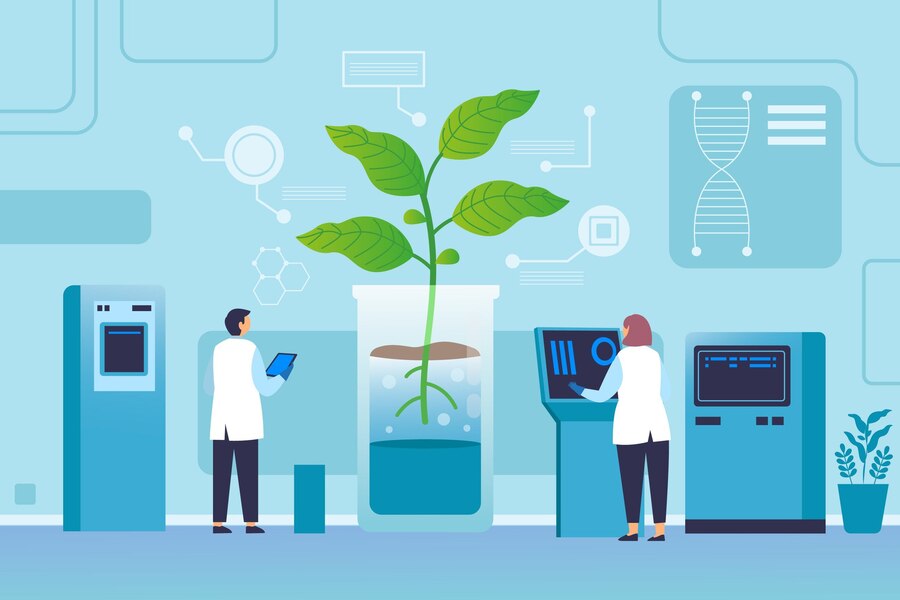
The effectiveness of Deep Water Culture (DWC) cloning machines lies in their ability to promote rapid root development. The constant supply of oxygen and nutrients to the plants’ root systems allows for accelerated growth and increased success rates in cloning. Additionally, DWC cloning machines offer a low-maintenance solution, requiring minimal intervention once the system is set up. With the right balance of nutrients and proper water circulation, DWC cloning machines provide a reliable and efficient method for propagating plants hydroponically.
The Role of Lighting Systems in Cloning Machines
Lighting systems play a crucial role in the success of cloning machines for plant propagation. When it comes to cloning plants, providing the right amount and quality of light is essential for promoting healthy growth and enhancing root development.
In cloning machines, lighting systems are designed to mimic natural sunlight, providing the necessary spectrum of light for photosynthesis and promoting the production of energy-rich compounds within plant cells. These systems typically utilize high-intensity discharge (HID) lights, such as metal halide (MH) and high-pressure sodium (HPS) lamps, or more advanced options like light-emitting diodes (LEDs). The choice of lighting system depends on factors such as the type of plants being propagated, the size of the cloning machine, and the available budget. However, regardless of the specific technology used, the main goal is to create an ideal environment for plants to thrive and develop strong root systems.
Would you like to learn more about the different types of lighting systems available for cloning machines and their specific benefits? What are some other factors that you consider important in selecting a cloning machine for successful plant propagation? Let us explore these aspects further in the upcoming sections.
Temperature and Humidity Control: Crucial Factors in Cloning Success
Maintaining the right temperature and humidity levels is essential for successful cloning. These factors play a crucial role in the overall health and development of clones, ensuring optimal root growth and minimizing the risk of diseases or pests. Controlling temperature helps regulate metabolic processes, while managing humidity prevents excessive moisture loss and supports transpiration.
For temperature control, it is recommended to maintain a range between 72 to 78 degrees Fahrenheit (22 to 26 degrees Celsius). This temperature range promotes faster root establishment and robust growth. It is important to note that temperature fluctuations can be detrimental to clones, so it is beneficial to invest in a cloning machine that provides stable and precise temperature control.
Humidity, on the other hand, directly affects the rate of transpiration and water uptake in clones. It is recommended to maintain a relative humidity (RH) level between 70% to 80% during the initial stages of cloning. This high humidity creates an ideal microclimate that encourages faster root development and prevents excessive moisture loss. As the clones develop, the RH can be gradually reduced to around 60% to 70% to stimulate hardier, stronger growth.
In conclusion, maintaining the proper temperature and humidity levels is crucial for successful cloning. By providing stable and precise control over these factors, you can ensure optimal conditions for root development and overall clone health. It is important to invest in a cloning machine that offers reliable temperature and humidity regulation to enhance cloning success.

The Importance of Sterilization and Sanitation in Cloning Machines
Sterilization and sanitation are two crucial factors that play a significant role in the success of cloning machines for plant propagation. Ensuring a clean and sterile environment is essential to prevent the growth and spread of pathogens, bacteria, and fungi that can harm the delicate cuttings.
When using a cloning machine, it is vital to thoroughly clean and sterilize all the components before and after each use. This includes the cloning trays, domes, pumps, and tubing, as well as any cutting tools or equipment used during the process. Sterilization can be achieved through various methods such as using sterilizing solutions, bleach, or even high-pressure steam. The goal is to eliminate any potential contaminants that could hinder the cloning process and compromise the health of the cuttings.
Maintaining proper sanitation practices throughout the cloning process is equally important. This includes regularly cleaning the cloning machine, disinfecting the water reservoir, and monitoring the pH and nutrient levels to prevent the growth of algae or harmful bacteria. A clean and sanitized environment promotes healthy root development, improves the overall success rate of cloning, and reduces the risk of diseases or infections that can impede the growth and vitality of the new plants.
By prioritizing sterilization and sanitation in cloning machines, gardeners and plant enthusiasts can ensure the best possible conditions for successful plant propagation. Creating an environment that is free from contaminants and pathogens provides the ideal foundation for healthy and thriving clones. So, taking the time to clean, sterilize, and maintain the cloning machine will significantly improve the chances of achieving successful results and cultivating a bountiful garden.
Let’s discuss the importance of sterilization and sanitation in the context of cloning machines. Ensuring proper hygiene and cleanliness is crucial for successful cloning and preventing contamination. Here’s a concise overview:
| Aspect | Explanation |
|---|---|
| Sterilization | Sterilization is a process that eliminates all forms of microbial life from surfaces or fluids. In the context of cloning machines, it ensures that no harmful microorganisms (including spores) remain. Sterilization prevents the transmission of infections to plant cuttings during the cloning process. |
| Disinfection | Disinfection targets pathogenic microorganisms on inanimate objects. While it doesn’t achieve complete sterility, it significantly reduces the risk of contamination. Properly disinfected cloning machines help maintain a clean environment for successful rooting. |
| Cleaning | Cleaning involves removing visible soil (such as organic and inorganic material) from objects and surfaces. It’s the initial step before sterilization or disinfection. Clean equipment ensures accurate results and minimizes interference from debris. |
| Decontamination | Decontamination removes pathogenic microorganisms, making objects safe for handling, use, or disposal. It’s essential for maintaining a sterile environment during cloning. |
| Classification of Items | Cloning machines handle different types of items: – Critical Items: These must be sterile (e.g., surgical instruments, catheters). – Semi-critical Items: These contact mucous membranes or non-intact skin (e.g., endoscopes). – Noncritical Items: These come in contact with intact skin (e.g., blood pressure cuffs). Proper sterilization or disinfection depends on the item’s risk level. |
Remember, meticulous sterilization and sanitation practices are fundamental for successful cloning and healthy plant propagation!
Evaluating the Capacity and Size of Cloning Machines
When evaluating the capacity and size of cloning machines, it is important to consider the specific needs and requirements of your plant propagation project. The capacity of a cloning machine refers to the number of plant cuttings it can accommodate at one time, while the size relates to the physical dimensions of the machine itself.
Choosing the right capacity for your cloning machine depends on the scale of your operation and the number of plant cuttings you wish to propagate at once. If you’re a hobbyist or have a small garden, a smaller capacity machine may suffice. However, for larger commercial projects or extensive plant propagation, it is advisable to opt for a cloning machine with a higher capacity. This will ensure that you can efficiently clone a significant number of plants while minimizing the time and effort required. Additionally, consider the available space you have for the machine and choose a size that fits appropriately without causing inconvenience or limitations in your growing area. By carefully evaluating the capacity and size of cloning machines, you can make informed decisions that will contribute to the success of your propagation endeavors.
Noise and Energy Efficiency: Choosing a Cloning Machine for Indoor Use
Indoor gardening can be an enjoyable and rewarding experience, but it’s important to select the right cloning machine to ensure a quiet and energy-efficient operation. Noise levels can be a significant concern, especially if you plan to keep the cloning machine in areas where you spend a lot of time, such as your living room or home office. Fortunately, many modern cloning machines are designed with noise reduction in mind, utilizing advanced technologies and materials to minimize operational noise. When making your selection, look for machines that have sound insulation or a built-in noise reduction system to ensure a peaceful environment in your indoor space.
In addition to noise considerations, energy efficiency is another crucial factor to keep in mind when choosing a cloning machine for indoor use. Energy-efficient machines not only help minimize your environmental footprint but also reduce your energy costs in the long run. Look for cloning machines that are Energy Star certified or are equipped with energy-saving features such as programmable timers, low-power consumption motors, and LED lighting systems. These energy-efficient options ensure your cloning machine operates efficiently while providing optimal conditions for successful plant propagation. By selecting a noise and energy-efficient model, you can cultivate your plants indoors without any disruptions and enjoy the benefits of a thriving garden.
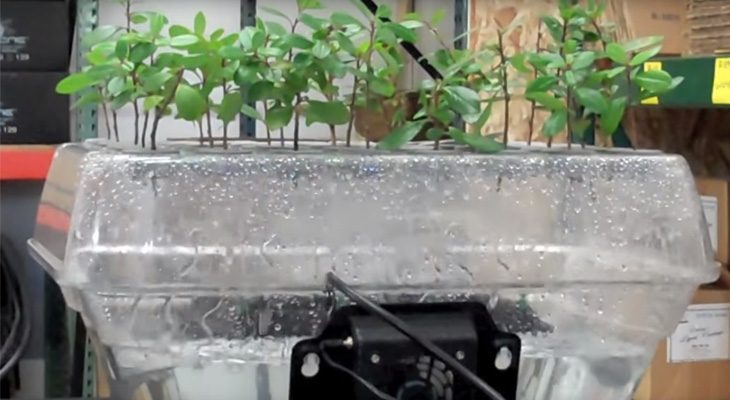
Understanding Cloning Mediums: What Works Best for Successful Propagation?
When it comes to successful plant propagation through cloning, the choice of the cloning medium plays a crucial role. The cloning medium is the substance in which the plant cuttings are placed to encourage root development and growth. There are various types of cloning mediums available, each with its own advantages and suitability for different plant species.
One commonly used cloning medium is rockwool. Made from spun mineral fibers, rockwool provides excellent water retention and helps maintain a balanced level of moisture around the plant cuttings. Its porous structure allows for sufficient airflow and oxygenation, promoting healthy root growth. Another popular option is peat moss, which is derived from decomposed plant matter. Peat moss is known for its water-holding capacity and ability to retain nutrients, making it an ideal choice for delicate or sensitive plant species. Coconut coir is also gaining popularity as a cloning medium due to its sustainable nature and ability to retain moisture while still providing adequate drainage.
It is important to consider the specific requirements of the plant species being propagated when choosing a cloning medium. Factors such as water retention, nutrient availability, pH levels, and aeration all play a role in the success of the rooting process. By selecting the right cloning medium, gardeners can create an optimal environment for their plant cuttings to flourish and thrive.
Troubleshooting Common Issues with Cloning Machines: Tips and Solutions
Troubleshooting Common Issues with Cloning Machines: Tips and Solutions
One common issue that gardeners may encounter when using cloning machines is a lack of root development in the propagated plants. This can be attributed to several factors, such as improper cutting techniques or suboptimal environmental conditions. To address this problem, it is crucial to ensure that the cuttings are taken from healthy and disease-free plants. Additionally, using a rooting hormone can significantly enhance root development and increase the chances of successful propagation. It is also essential to maintain the appropriate temperature and humidity levels within the cloning machine, as these factors play a crucial role in root formation. Regular monitoring and adjustments can help optimize these conditions and promote successful cloning.
Another issue that gardeners may face is the occurrence of mold or fungal growth in the cloning machine. This can inhibit the growth of the propagated plants and jeopardize the cloning process. To prevent the growth of mold or fungi, it is important to maintain a clean and sterile environment within the cloning machine. Regularly disinfecting the machine and using sterile tools, such as scalpels or scissors, can help minimize the risk of contamination. Additionally, ensuring proper ventilation and air circulation within the cloning machine can help reduce humidity levels and prevent the buildup of moisture, which can promote mold growth. Regular inspection and proactive measures can effectively address this issue and maintain a healthy and conducive environment for successful plant propagation.
Please do watch video!
What is plant propagation and why is it important for cloning?
Plant propagation refers to the process of creating new plants from existing ones. It is important for cloning because it allows for the reproduction of desirable traits and the preservation of plant genetics.
How do I choose the right cloning machine for my needs?
Consider factors such as the type of plants you will be cloning, the size of your operation, and your budget. Research different types of cloning machines and their features to find the one that best suits your requirements.
What are some factors to consider before buying a cloning machine?
Consider factors such as the size and capacity of the cloning machine, the type of propagation method it uses, its automation level, energy efficiency, and noise level. These factors can greatly impact the success and efficiency of your cloning process.
What are the different types of cloning machines available for plant propagation?
There are various types of cloning machines, including aeroponic cloning machines, deep water culture (DWC) cloning machines, and manual cloning machines. Each type has its own advantages and considerations.
What are the benefits of automated cloning machines?
Automated cloning machines offer convenience and efficiency by automating the cloning process, reducing the need for manual labor, and providing precise control over environmental factors such as temperature and humidity.
Are manual cloning machines a cost-effective option for plant propagation?
Yes, manual cloning machines are often more affordable compared to automated ones. They require more manual labor but can still produce successful cloning results.
What is the efficiency of aeroponic cloning machines compared to other types?
Aeroponic cloning machines are known for their high success rates and fast root development. They provide oxygen-rich environments for clones, resulting in faster and healthier growth.
How can deep water culture (DWC) cloning machines be an effective hydroponic solution?
DWC cloning machines use a nutrient-rich water solution to promote root growth. This hydroponic method ensures constant access to nutrients and encourages rapid and healthy cloning.
How do lighting systems play a role in cloning machines?
Lighting systems are crucial for providing the right amount and spectrum of light needed for successful cloning. They play a key role in photosynthesis and root development.
Why are temperature and humidity control crucial factors for cloning success?
Maintaining optimal temperature and humidity levels is essential for the successful rooting and overall health of clones. Proper control of these factors ensures a favorable environment for root growth.
Why is sterilization and sanitation important in cloning machines?
Sterilization and sanitation are important to prevent the spread of diseases and infections that can affect the clones. Proper cleaning and disinfection of cloning machines help maintain a healthy environment for successful cloning.
How can I evaluate the capacity and size of cloning machines?
Consider factors such as the number of clones you need to propagate at once and the available space in your growing area. Choose a cloning machine that can accommodate your desired capacity and fits within your space limitations.
What should I consider in terms of noise and energy efficiency when choosing a cloning machine for indoor use?
For indoor use, choose a cloning machine that operates quietly to avoid disruptions. Additionally, opt for an energy-efficient model to minimize electricity consumption and reduce costs.
What cloning medium works best for successful propagation?
Different cloning mediums, such as rockwool, peat moss, and coco coir, can be used for successful propagation. The choice depends on factors such as water retention, aeration, and nutrient absorption.
What are some common issues with cloning machines and their solutions?
Common issues include poor rooting, mold or fungal growth, and uneven growth. Solutions may include adjusting temperature and humidity levels, improving sterilization practices, and ensuring proper lighting and nutrient levels.

Nicole Burke is a dynamic writer at SouthElMonteHydroponics, fueled by her passion for horticulture and environmental sustainability. Armed with a degree in Environmental Science from a renowned institution, Nicole’s expertise lies in hydroponic gardening, organic farming, and biodiversity conservation. Her insatiable curiosity and love for nature drive her to explore innovative techniques in hydroponics, seeking to revolutionize the way we grow crops in urban environments. Nicole’s writing reflects her deep commitment to promoting eco-conscious practices and fostering a deeper connection between humans and the natural world. Through her engaging storytelling, she inspires others to embrace sustainable living and harness the power of hydroponics for a greener future.


